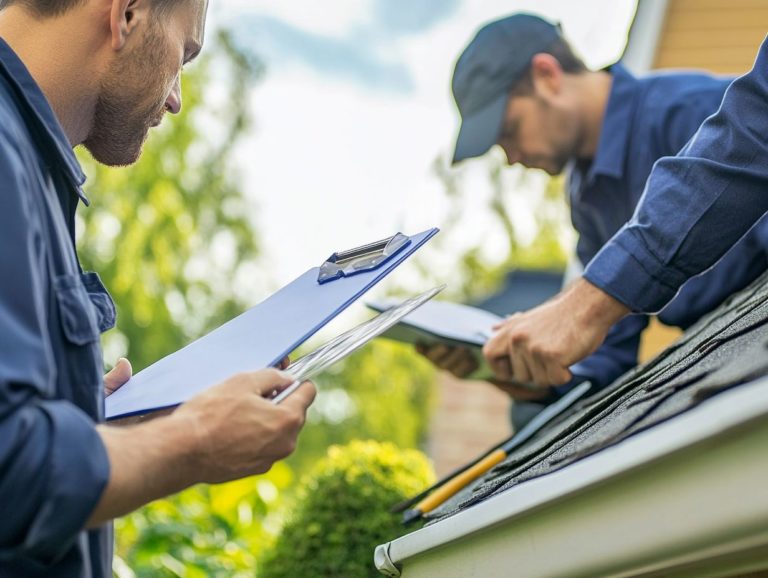The Role of a Mechanic in Used Car Buying
Buying a used car can spark excitement, but it often comes with anxiety about the vehicle’s condition and reliability.
In this journey, a trusted mechanic is your helpful partner, guiding you to make an informed decision. Their expertise is crucial, as they conduct thorough inspections and pinpoint potential issues that could save you from costly blunders down the line.
Let’s explore why having a mechanic by your side is a game changer! This article highlights the importance of involving a mechanic, how to locate a reliable one, and how to use their insights during negotiations.
Whether you re stepping into the market for the first time or you’ve navigated it before, recognizing the mechanic s role is essential for ensuring a successful purchase.
Contents
- Key Takeaways:
- The Importance of a Mechanic in Used Car Buying
- What a Mechanic Can Do for You
- How to Find a Reliable Mechanic
- What to Expect from a Mechanic’s Report
- Using the Mechanic’s Report in Negotiations
- Frequently Asked Questions
- What is the role of a mechanic in used car buying?
- Why should I involve a mechanic in my used car purchase?
- Can I trust the assessment of a mechanic when buying a used car?
- What aspects of the used car does a mechanic typically inspect?
- Can a mechanic help negotiate the price of a used car?
- Is it necessary to involve a mechanic if I am buying a certified pre-owned car?
Key Takeaways:
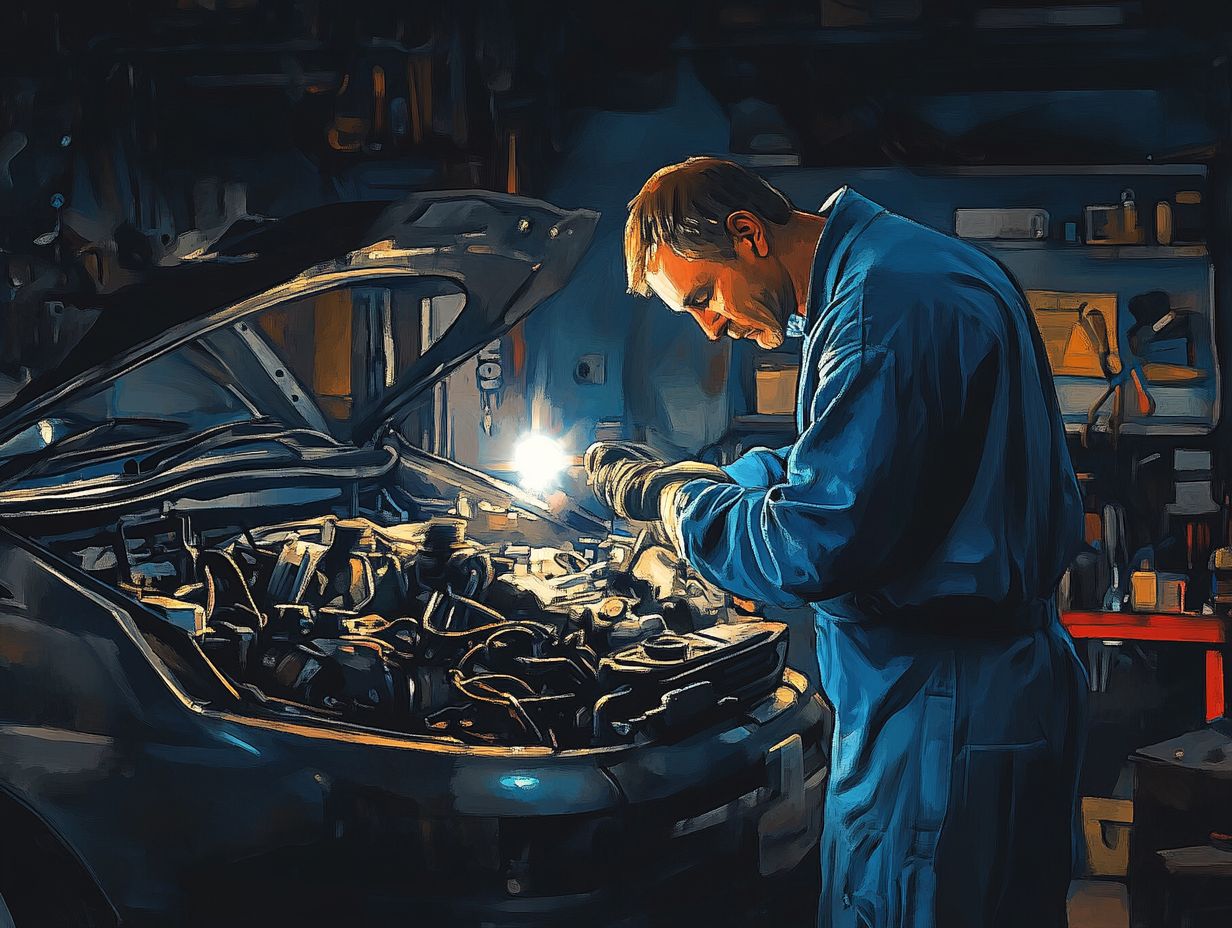
- Always involve a mechanic to get a full inspection before buying.
- Do your homework to find a trustworthy mechanic who can spot problems.
- Use what the mechanic finds to negotiate a better price for the car.
The Importance of a Mechanic in Used Car Buying
When you’re considering the purchase of a used car, enlisting the expertise of a qualified mechanic is essential for making a well-informed decision. A thorough inspection by a mechanic can reveal hidden issues that a basic vehicle history report or even a test drive might miss.
They can evaluate crucial safety features the systems that keep you safe on the road and review maintenance records, which show how the car has been cared for. This gives you a clearer picture of the vehicle’s true value, especially when buying from a used car dealer, as their claims may not always be straightforward.
Andrew Parker from Whistler s Automotive in Glenpool, Oklahoma, highlights how invaluable a mechanic’s insight is for protecting your investment.
Why a Mechanic Is Your Best Friend When Buying a Used Car
Involving an independent mechanic in your used car buying journey is crucial for a thorough inspection that can significantly sway your purchase decision.
By bringing in the expertise of a trusted mechanic, you gain insights into the vehicle’s true condition, uncovering potential issues that might escape the untrained eye. This comprehensive evaluation not only helps identify immediate repair needs but also paints a clearer picture of the car’s overall reliability and longevity.
When you have an expert assess the vehicle, you re enabled during negotiations. You can leverage the mechanic’s findings to advocate for a fair price or explore warranty options, ultimately ensuring that you make a smart investment.
What a Mechanic Can Do for You
A qualified mechanic offers invaluable assistance when you re in the market for a used vehicle. Their comprehensive inspection report delves into various critical aspects, ensuring you make an informed decision before finalizing your purchase.
Inspection and Evaluation of the Vehicle
A vehicle inspection checklist is critical for you as a mechanic, allowing for a systematic evaluation of a vehicle’s condition during a comprehensive inspection.
This methodical approach ensures that every critical component like the engine, brake system, and various safety features is carefully scrutinized. By utilizing a checklist, you can effectively track potential issues and prioritize areas that need immediate attention.
Each item on the list serves as a crucial standard, underscoring the significance of rigorous protocols in the automotive industry. These standards are essential not just for maintaining optimal vehicle performance, but also for ensuring the safety of both drivers and passengers.
This diligence builds consumer trust and complies with regulatory requirements.
Identifying Potential Issues
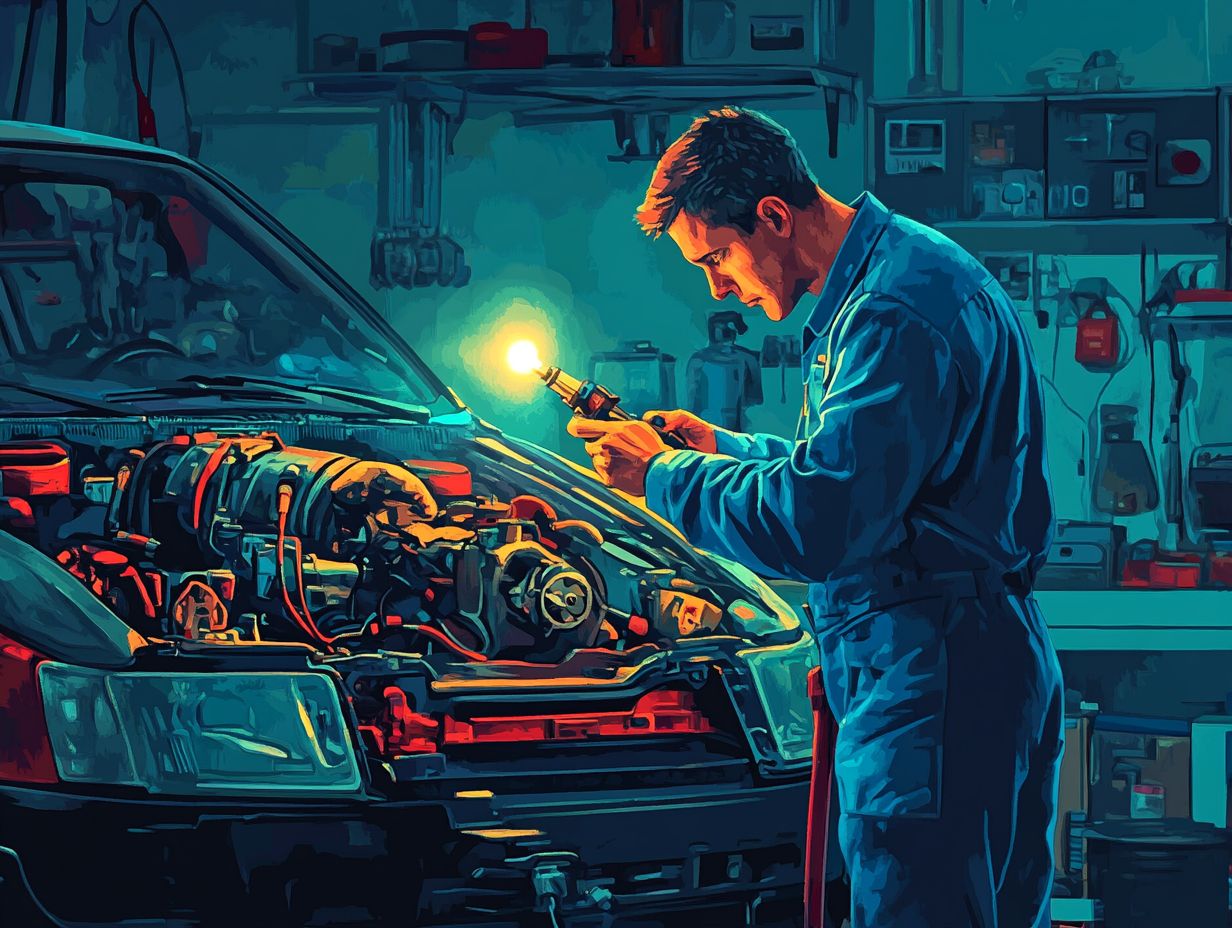
Identifying potential issues in a used car is vital. Hidden problems can lead to costly repairs later on. You should focus on crucial hidden aspects that mechanics often investigate, such as engine wear, transmission problems, and less visible issues like frame damage or electrical system faults.
A comprehensive vehicle history report and well-maintained service records can shed light on these concerns. They reveal insights into past accidents, service intervals, and potential red flags. By familiarizing yourself with these common issues, you arm yourself with the knowledge needed to negotiate the price effectively, potentially saving significant amounts on future repairs and securing a better deal for yourself.
How to Find a Reliable Mechanic
Finding a reliable mechanic is essential for you as a used car buyer. Their expertise can significantly impact your purchase decision and enhance your overall satisfaction with the vehicle.
Research and Recommendations
Researching and gathering recommendations is essential when it comes to finding a qualified mechanic. This ensures you choose someone capable of delivering a detailed check-up report.
This process goes beyond simply asking friends and family for feedback; it also includes diving into dealer reviews and exploring recommendations from reputable sources. In today’s digital age, online platforms are treasure troves of information. A quick glance at reviews on websites dedicated to automotive services can reveal valuable insights into the experiences of others.
Local automotive industry ratings and accreditation from organizations like the Better Business Bureau offer additional context regarding a mechanic’s reliability and professionalism.
By employing a mix of these research methods, you can significantly boost your chances of selecting a trustworthy mechanic, leading to peace of mind and confidence in the maintenance of your vehicle.
Questions to Ask
When selecting a mechanic, it’s crucial to ask the right questions to ensure they can deliver a high-quality inspection report. This process not only boosts your confidence in the vehicle you intend to purchase but also allows you to evaluate the mechanic’s expertise and reliability.
Consider inquiring about their years of experience in the field, the types of inspections they offer, and any specialized training they may have undergone. It s wise to ask how they assess the condition of used cars. Do they employ specific diagnostic tools? What does their inspection checklist include?
Gathering insights on these factors can significantly shape your decision-making process, ultimately leading to a safer and more informed investment.
What to Expect from a Mechanic’s Report
A mechanic’s report should give you comprehensive insights into the vehicle’s condition. It should encompass vital information on engine health, safety features, and any discrepancies regarding the vehicle title status.
This level of detail is essential for making informed decisions about the vehicle’s value and reliability.
Interpreting the Findings
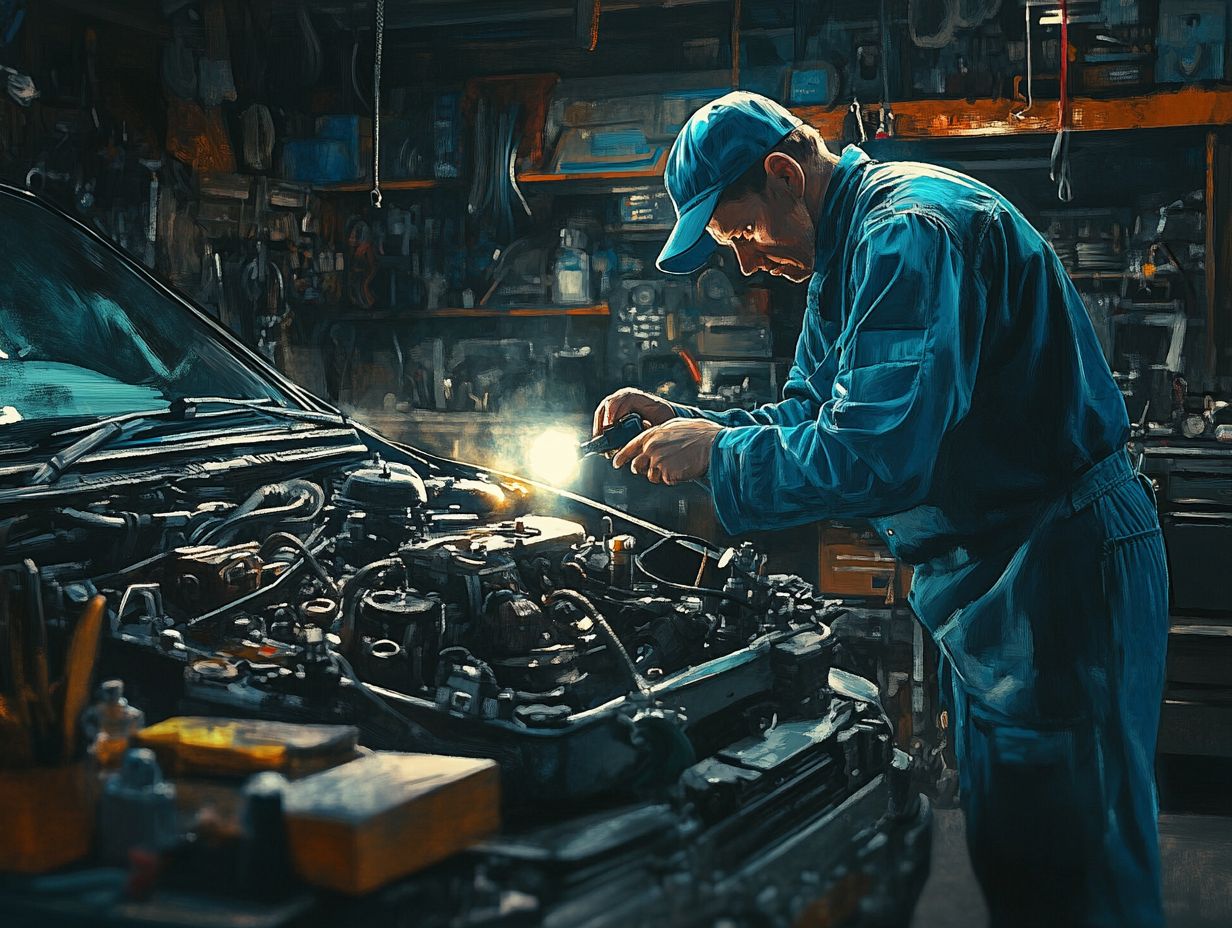
Interpreting the findings in a mechanic inspection report is essential for grasping the true condition of a used vehicle and uncovering potential hidden problems.
By meticulously examining the report, you can pinpoint critical areas such as engine condition, brake system health, and tire wear that significantly influence the vehicle’s overall assessment.
It s vital to pay attention to any flagged concerns, as these may reveal unexpected issues that could arise shortly after your purchase.
Understanding the mechanic’s notes on required maintenance or immediate repairs can offer valuable insights into potential warranty options, enabling you to make a more informed decision about whether to invest in additional coverage or explore other vehicles.
Get your vehicle checked today to avoid costly repairs later!
Using the Mechanic’s Report in Negotiations
Leveraging the car inspection report in your negotiations can be a game changer, providing you with the upper hand. This document allows you to negotiate the price based on the vehicle’s true condition and history, ensuring you make an informed decision.
How to Use the Information to Your Advantage
Utilizing the information from the car inspection report can truly transform your negotiations when pricing a used car. This report not only sheds light on the vehicle’s current condition but also reveals any potential future costs you may face.
As you discuss the findings, focus on specific elements such as engine condition checks and previous maintenance records. Highlighting details about necessary repairs can bolster your position and justify a lower offer.
Exploring warranty options based on the report s insights can help reduce your long-term expenses.
By entering negotiations equipped with this valuable information, you enable yourself to craft a persuasive argument for securing a better deal. Don’t miss out on negotiating the best price!
Frequently Asked Questions
What is the role of a mechanic in used car buying?
Your mechanic is your best friend when buying a used car! They ensure the vehicle is safe and in good working condition.
Why should I involve a mechanic in my used car purchase?
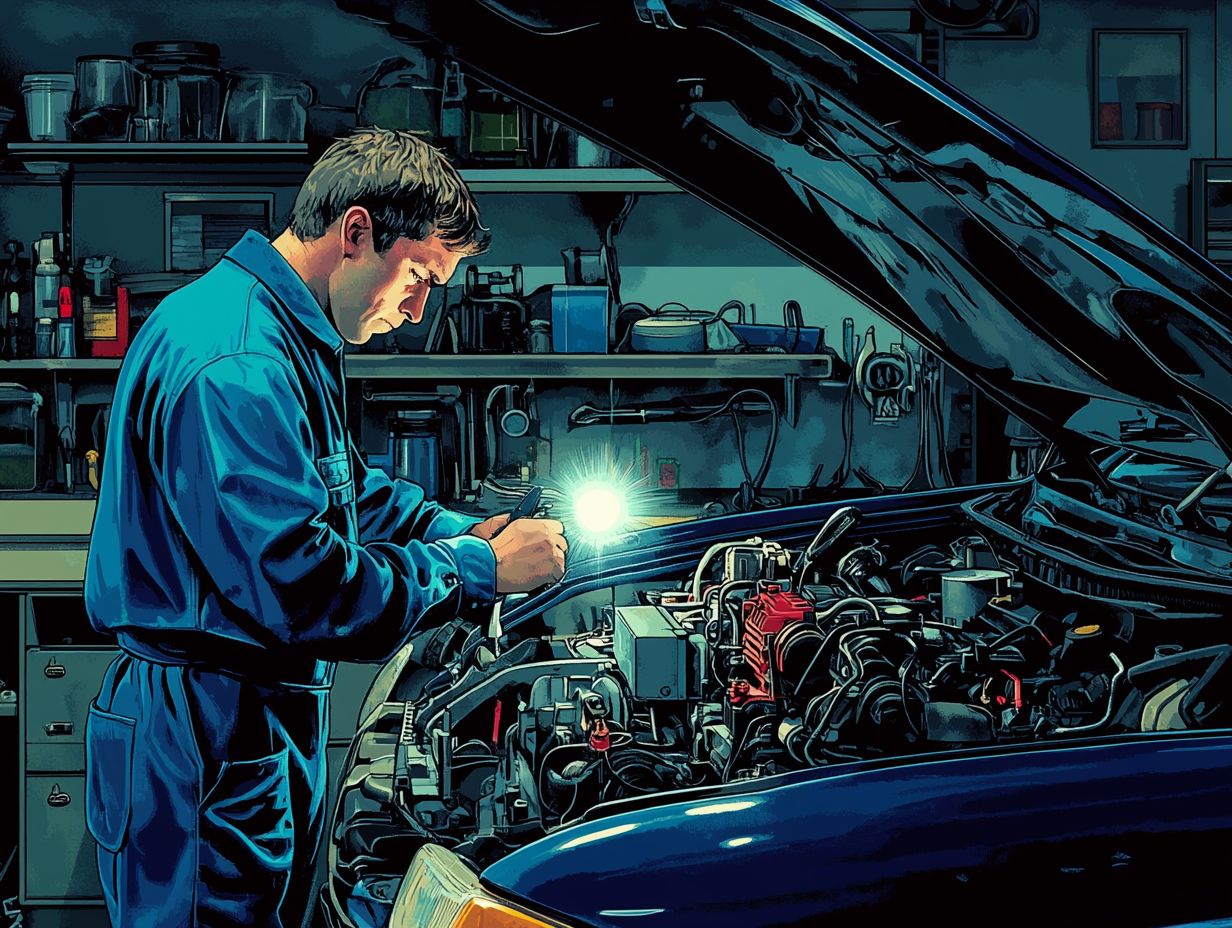
Involving a mechanic in your used car purchase can save you from potential headaches and unexpected repairs down the road. They are trained to identify any underlying issues with the vehicle.
Can I trust the assessment of a mechanic when buying a used car?
Yes, a mechanic’s assessment is an unbiased and professional evaluation of the vehicle’s condition. They have no vested interest in the sale and are solely focused on ensuring the safety and reliability of the car.
What aspects of the used car does a mechanic typically inspect?
A mechanic will typically inspect the engine, transmission, brakes, suspension, tires, and overall condition of the car. This ensures it meets safety standards and is in good working order.
Can a mechanic help negotiate the price of a used car?
While a mechanic cannot directly negotiate the price, their assessment provides valuable insights that can be used in negotiations with the seller.
Is it necessary to involve a mechanic if I am buying a certified pre-owned car?
Even if you are purchasing a certified pre-owned car, it is still recommended to involve a mechanic for an independent inspection. This ensures the vehicle’s condition matches its certified status.




